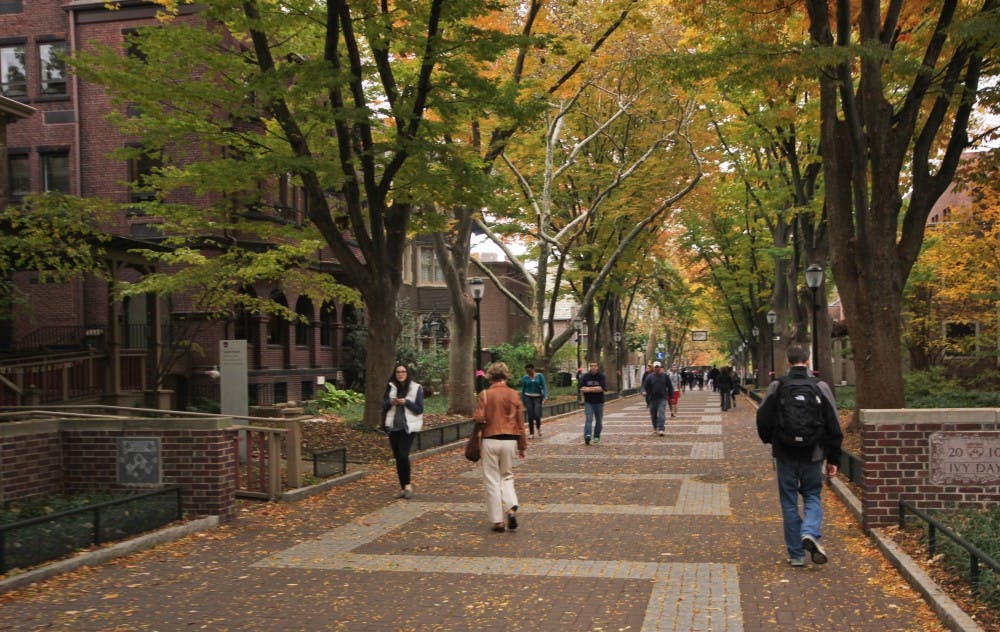An online petition proposing a resource center for Penn students who are veterans is gaining significant support, amassing over 375 signatures as of Monday night.
The petition, circulated by the University of Pennsylvania Student Veteran Association last Tuesday, states that veterans are the only federally protected class that does not have a dedicated center on campus.
In addition to establishing a center, the petition proposes creating a full-time staff position and a website dedicated to serve the military community on campus.
The proposed center would serve not only United States military veterans, but also students in the Reserve Officers’ Training Corps and foreign military veterans, such as students from South Korea, Israel and Singapore. The resource center would also connect students who are interested in joining the military with veterans.
The 13-page proposal attached to the petition includes a detailed operating budget, which would amount to $89,500 in the first year for costs including the salary of one full-time staff member, office equipment and activity funds.
The University declined to comment on the proposal for this article. Sam Starks , the executive director of Affirmative Action and Equal Opportunity Programs , deferred comment to University Communications, which in turn directed questions to the Provost’s Office. The Provost’s Office referred The Daily Pennsylvanian back to Starks.
Wharton senior Timothy Kolb was stationed outside of Baghdad in the U.S. Army before coming to Penn. He is now the president of the Student Veteran Association at Penn, which counts about 30 undergraduates as members. Based on Kolb’s rough estimation, there are about 120 veteran students across the University, excluding the Perelman School of Medicine — but he noted that the exact number is hard to pin down because being a veteran is a self-identified status and some may choose not to report.
Kolb believes that a resource center for veteran students will help them to navigate through common problems.
“There is a general sense of loneliness among veterans,” especially among undergraduates, Kolb said. “They were in the military in this incredibly structured, team-focused environment. No action is done independently and everything is based on the team. Then you come to a broad university, then suddenly you are kind of on your own.”
Another common problem that U.S. veteran students have is applying for educational and financial benefits.
“Between the bureaucracy of the [Department of Veterans Affairs] and coming to Penn trying to figure out who processes anything, it is definitely a hurdle,” Kolb said. The proposed employee would be informed about the resources available for veterans and would help connect students with scholarships.
“Penn stacks up fairly poorly against the other Ivy Leagues for the most part,” Kolb said. “There’s a certain number of services that Penn does not offer yet, but the other schools do.”
Columbia and Brown universities have resource centers for veteran students. At Brown, a former military officer serves as a full-time point of contact for students interested in military service and veterans coming to Brown from the military, said Michael Webert , a 2014 Graduate School of Education alumnus and one of the authors of the proposal.
At Penn, there is a Veterans Upward Bound program that aims to prepare veterans for college and falls under the Vice Provost for University Life. The selective program serves about 160 students annually, but they come from places throughout the Philadelphia area. The Wharton Veterans Club also has about 60 members, Kolb said.
Kolb said the College of Liberal and Professional Studies is preparing to launch a veterans’ resource page on its website, since most veterans are in an LPS program.
However, there is no centralized support center that provides all the information, and many resource centers do not offer specific help for veterans. For example, Career Services website has specific assistance for LGBT students, students of color, students with disabilities and international students, among other populations, but it has no specialized services for veterans.
Webert mentioned the difficulty of translating military experience to the professional world.
“How do you describe what happened in a bootcamp — for 100 or 80 hours a week, where you are not allowed to sit down or lay down for 18 hours a day?” Webert said.
“Broadly at Penn, when you have a need affiliated to military, it’s not clear where you go, who you talk to, and that’s really what we want to accomplish,” he said.



